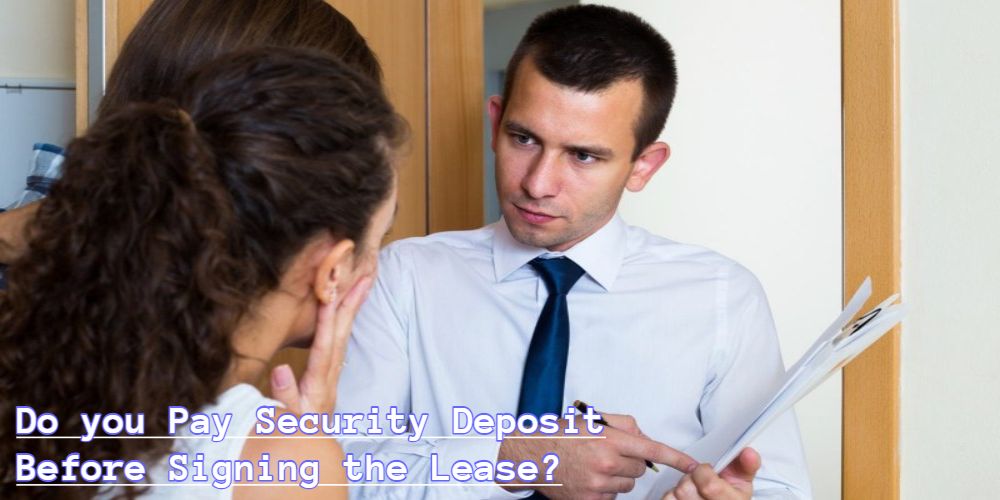Last Updated on March 18, 2024 by Kelvin Nielsen
So, you finally moved out of your California home; great! However, there is something still bothering you. 21 days have already passed and your previous landlord is yet to refund your security deposit back. And now you’re left wondering “what happens if the landlord does not return the security deposit in 21 days in California?”
Well, should you be worried? Absolutely! Bad faith retention of a tenant’s security deposit is a gross violation of the state’s tenancy laws.
Now, under California law (CA Civil Code 1940-1954.06), landlords have a right to charge tenants a security deposit as part of the initial move-in costs.
Be that as it may, the law requires that they abide by certain rules. Among other rules, the landlord must not exceed the state’s limit, only make deductions for legitimate reasons, and return it within 21 days.
If the landlord fails to abide by these rules, the potential legal and/or financial repercussions can be severe.
The following is everything you need to know regarding renters’ rights in California.
What happens if the landlord does not return security deposit in 21 days in California?
California landlords have 21 days to return their tenant’s deposit after moving out. If the landlord is making deductions, the landlord must notify you of their intentions to keep part or all of the deposit, plus provide an itemized statement.
The itemized statement must state the following.
- The original security deposit amount.
- An itemized list of deductions, showing the actual damages to the unit and the cost of repairs.
- The remaining portion of the security deposit (if any).
In making the deductions, the landlord must not retain any portion of your deposit in bad faith. Examples of bad faith retention of security deposit in California include.
- Failing to return the security deposit within the required 21-day period.
- Making unreasonable deductions to a tenant’s security deposit, such as charging you for routine carpet cleaning. This is against the landlord carpet replacement law in California, and is among various things a landlord cannot do in California.
- Failing to provide the tenant with an itemized list of deductions.
Under California law, a landlord who retains a tenant’s security deposit in bad faith may be liable for up to 2X the security deposit amount, plus damages.
To prove that the landlord acted in bad faith, you must be able to demonstrate the landlord’s reckless or intentional disregard for your rights. Admittedly, this can be quite tasking on your part.
Be that as it may, the following are some of the things you can do to help your case against the landlord.
- Document the property’s initial condition by taking pictures and videos.
- Keep all receipts for any repairs you’ve done, or the cleaning you have done.
- Document any communication you’ve had with the landlord, including all emails and voicemails.
- A copy of the demand letter if they failed to return your security deposit in 21 days.
Can I sue my landlord for not returning my deposit in California?
Absolutely! As a tenant, you may be able to sue your landlord for not returning your deposit in California.
Code section 1950.5 of the state’s Civil Code requires landlords to return their tenant’s security deposit within 21 days after a tenant moves out.
Your landlord may be able to make legitimate deductions from your deposit for reasons such as:
- For unpaid rent and utilities.
- Damages exceeding normal wear and tear.
- Excessive cleaning costs.
- Cost of restoring the unit from unlawful property alterations.
But still, the landlord must return the remaining portion (if any) to you, plus an itemized list of statement within 21 days after moving out.
If the landlord, however, fails to do any of these things, you may be able to sue them. You can sue them for the amount of the security deposit, plus up to 2X the security deposit amount in damages. Suing in a small claims court would be ideal.
Can a landlord increase the security deposit in California?
Yes! Unfortunately for you, your landlord may be able to increase the security deposit during your tenancy. However, even in doing so, there a few things that the landlord must keep in mind.
For one, the total amount of security deposit must not exceed the state’s limit. In California, the maximum security deposit amount a landlord can charge a tenant is 2 months’ rent for unfurnished rentals and 3 months’ rent for furnished rentals.
Two, the landlord must provide you with proper notification. Specifically, the landlord must provide you with a 30-day written notice.
And three, if the lease explicitly says that the landlord cannot raise the security deposit amount, then it’d be unlawful for the landlord to do so.
What can a landlord deduct from the security deposit in California?
Your landlord can make deductions to your security deposit for the following reasons.
- If you move out of the unit with a rent balance.
- If you leave the unit in a dire state of uncleanliness.
- If you fail to make repairs to damages exceeding normal wear and tear.
- If you fail to restore an alteration as per the lease.
That said, your California landlord must not make security deposit deductions for the following things.
- Painting, unless it was an unlawful property alteration by the tenant.
- Damages resulting from normal wear and tear, such as small nail holes, a faded carpet, or a loose door knob.
What is a pre-move out inspection in California?
A pre-move out inspection in California is a type of inspection carried out by landlords before a tenant can move out. A pre-move out inspection is also known as a walk-through inspection.
The purpose of a pre-move out inspection is to document property damage to the unit. It gives the tenant an opportunity to make repairs before they can move out.
The following are the rights you have when it comes to a pre-move out inspection under California law.
- Right to be notified of the pre-move out inspection within a reasonable time. The notice must be in writing.
- Right not to attend the inspection. It’s highly recommended that you do, though.
- Right to a 48 hours’ written notice prior to the inspection.
- Right to be provided with a list of any repairs that would need to be done prior to moving out.
Conclusion
Now, you know what to do if the landlord does not return your security deposit in 21 days in California. As a renter in California, you enjoy numerous rights under the state law. Here is a basic overview of the rights you have. There are also a number of things that your CA landlord cannot do under state law.
Disclosure: The content herein isn’t a substitute for advice from a professional attorney. It’s only meant to serve educational purposes. If you have a specific question, kindly seek expert attorney services.
Sources: CA Civil Code 1940-1954.06, https://selfhelp.courts.ca.gov/, https://www.findlaw.com/, https://www.lawdepot.com/resources/real-estate-articles/things-landlords-deduct-from-security-deposits/,

Hi, I’m Kelvin Nielsen, an experienced landlord and accomplished real estate lawyer. My focus is on answering your questions about renting in the hopes of making your life as a renter or a landlord a bit easier.







